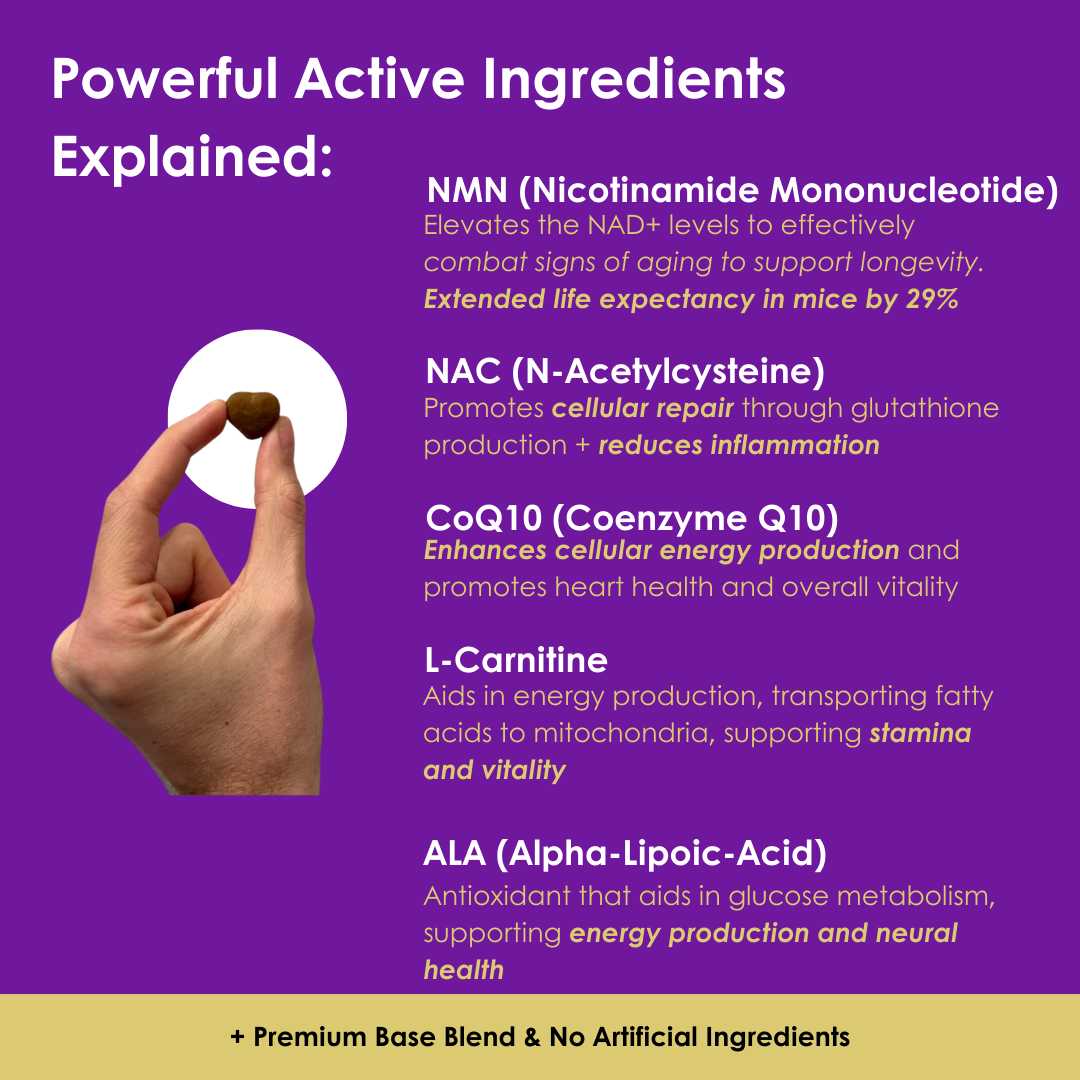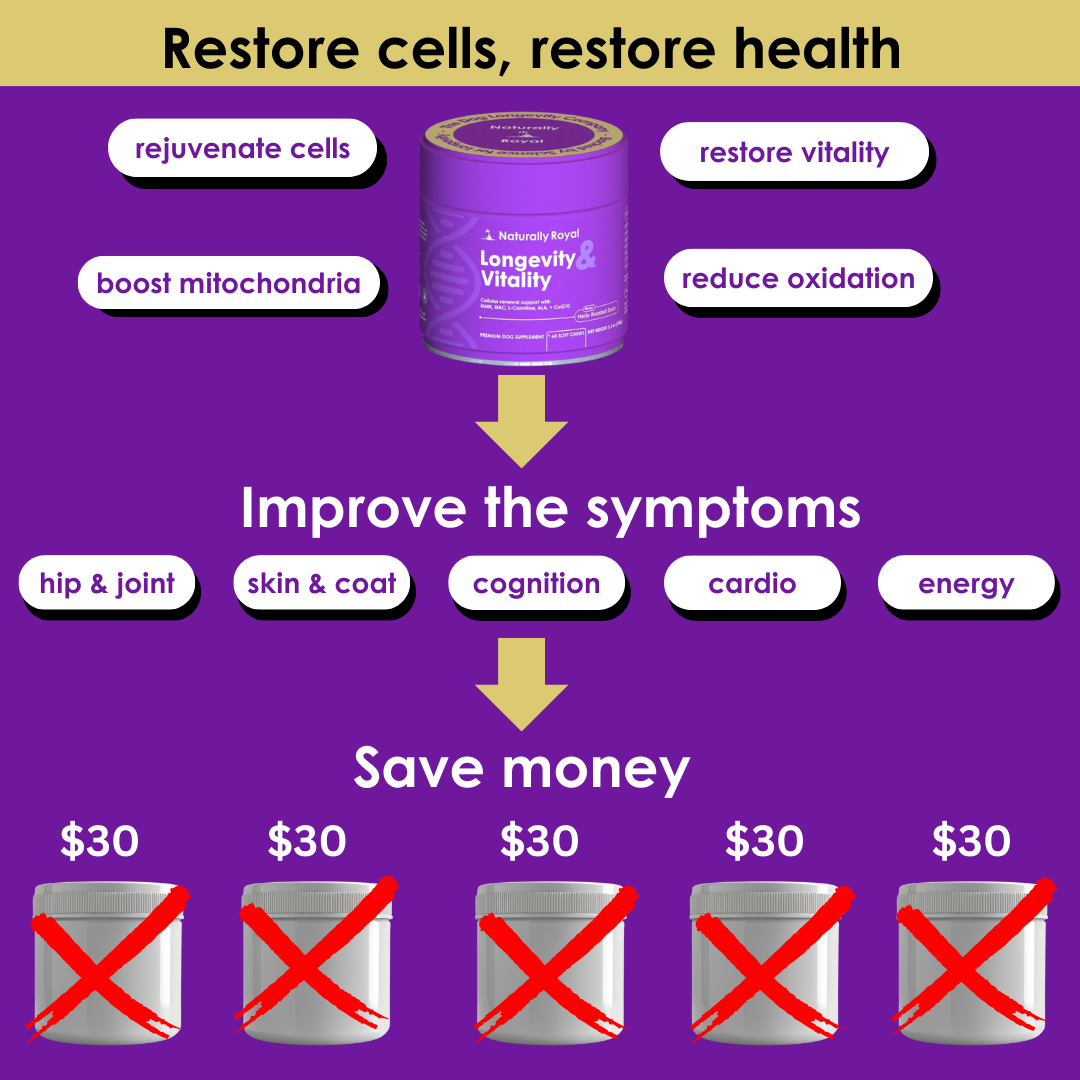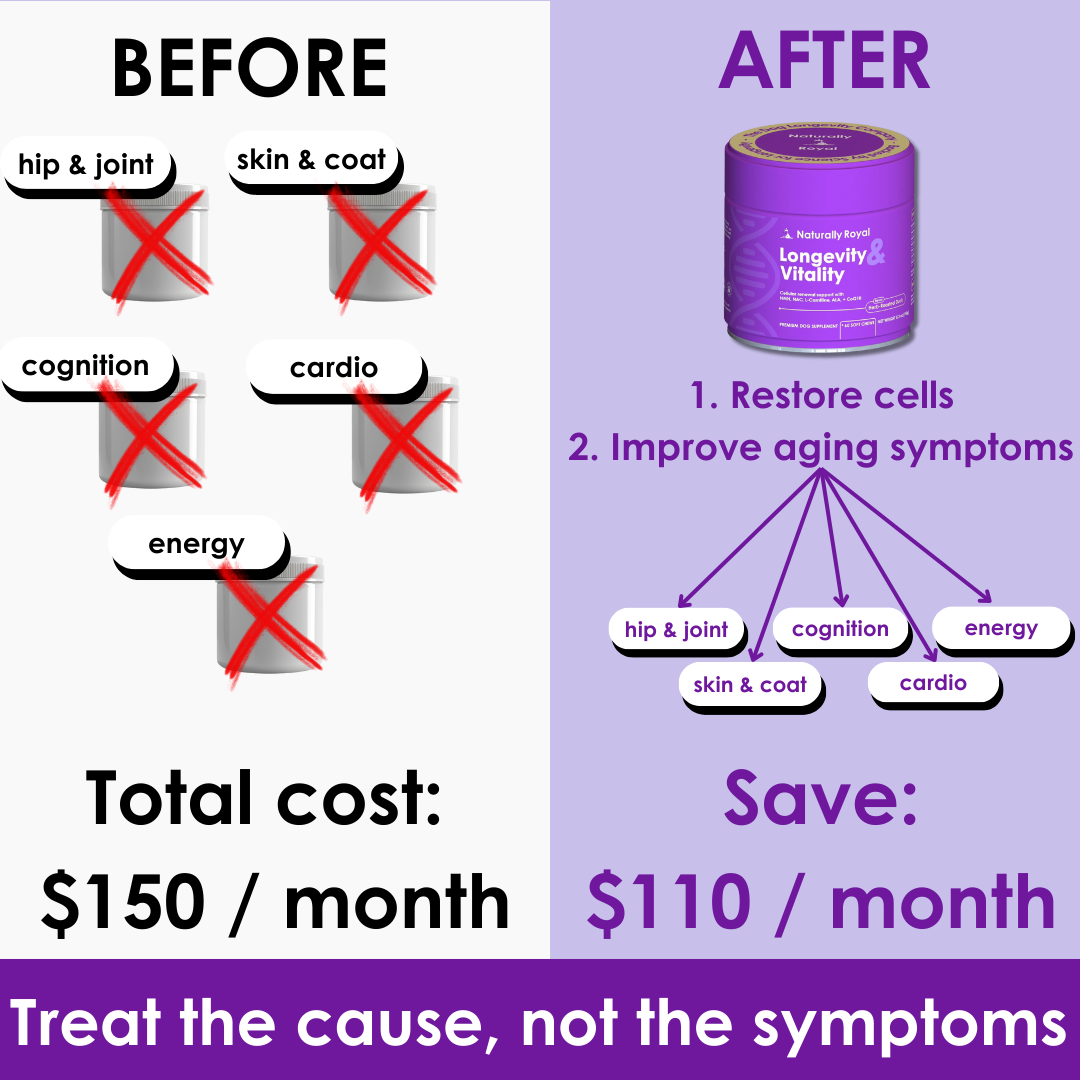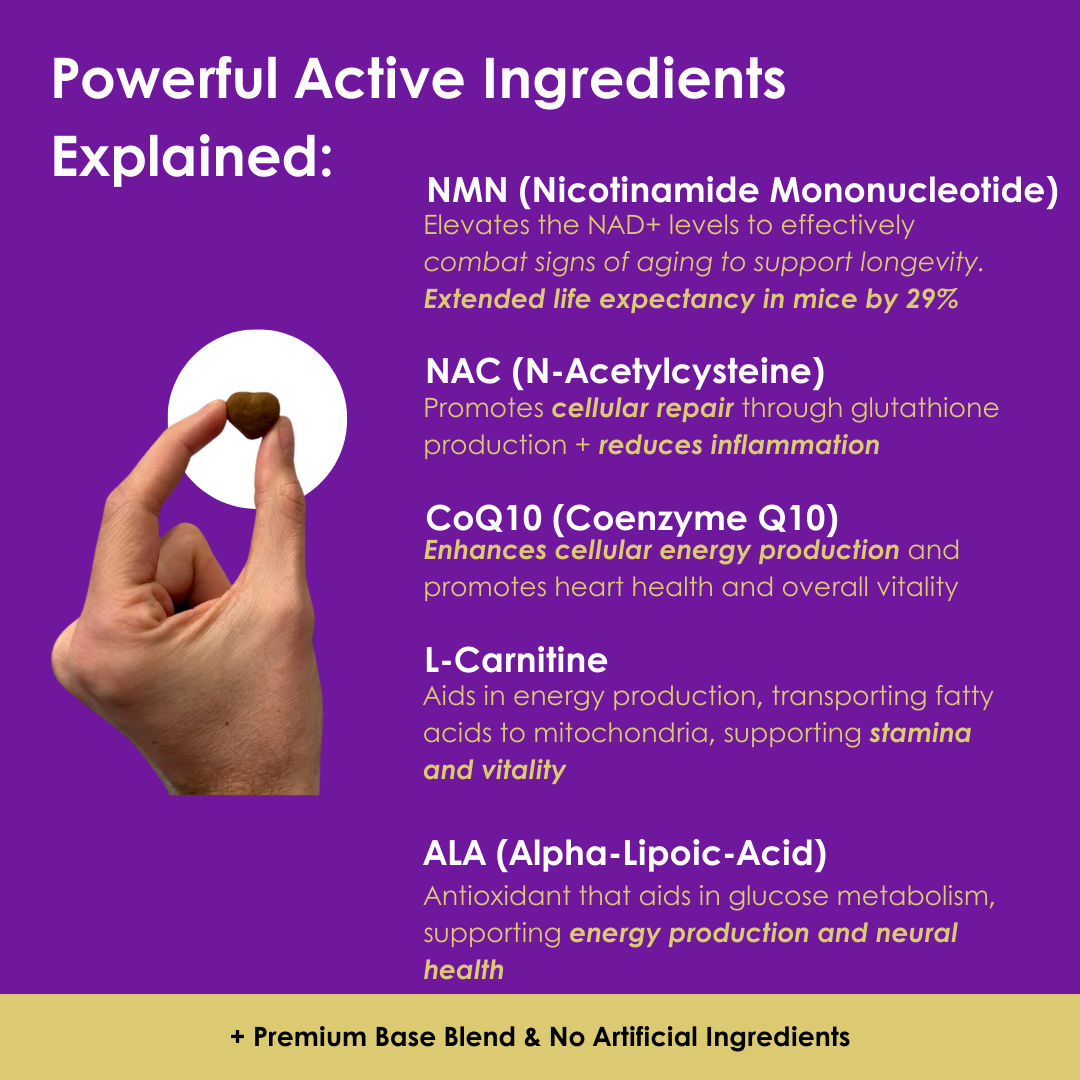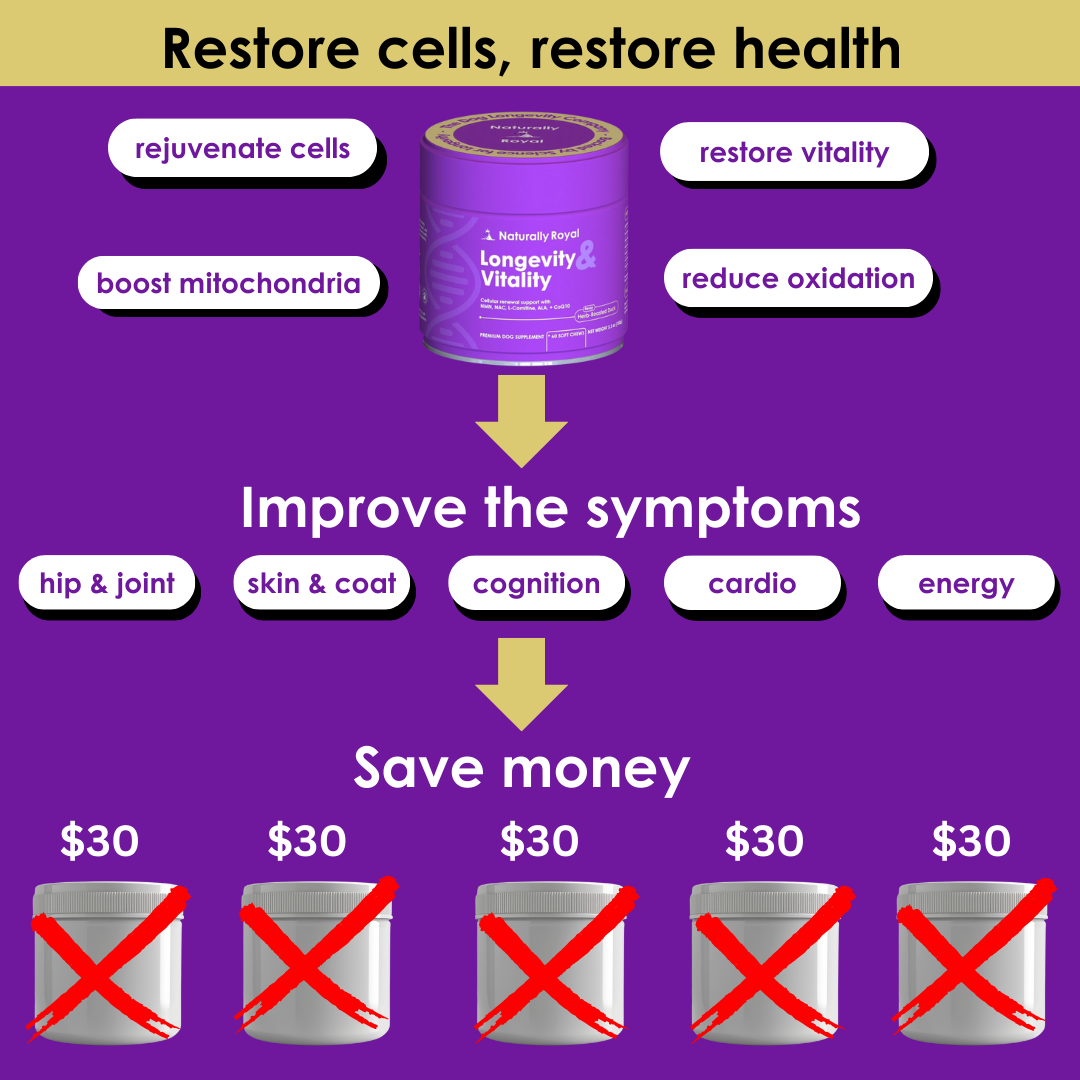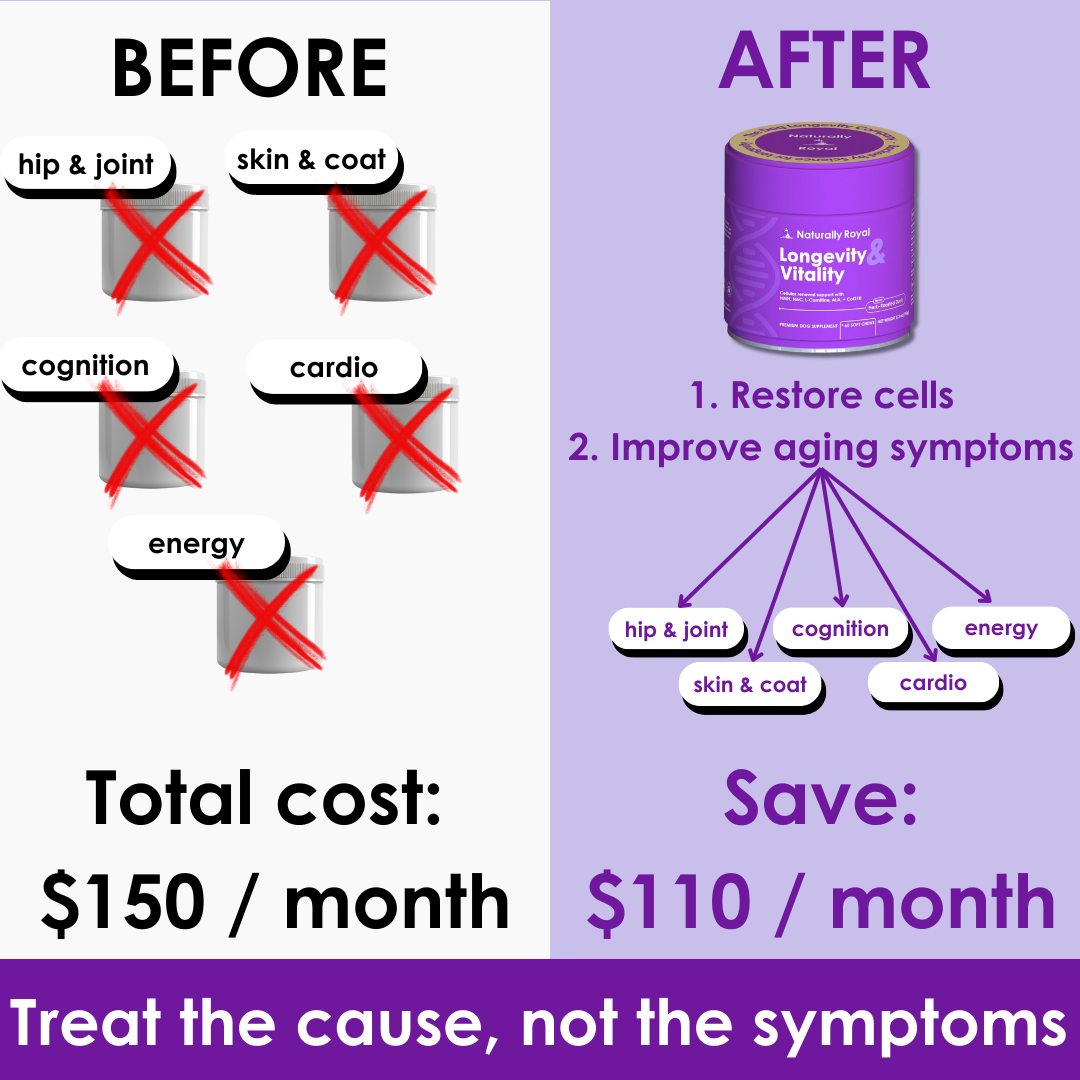Indicators of Aging
As dog parents, we all want our dogs to live the longest lives possible. Recognizing the signs of aging and understanding how to assess your dog's health can be instrumental in achieving this goal. Aging in dogs, like in humans, can be influenced by a variety of factors including genetics, environment, and lifestyle. While we can't stop the clock, we can monitor our dogs' health through various metrics and indicators to ensure they are aging gracefully. Here are key ways to assess aging health in dogs.
Visual and Physical Indicators
-
Coat Condition: A dog's coat can be a significant indicator of its health. With age, some dogs may start to show graying, especially around the muzzle and face. However, a healthy aging dog should still have a relatively shiny and full coat without excessive thinning or bald spots, which could indicate nutritional deficiencies or underlying health issues.
-
Body Condition and Weight: Maintaining an ideal body weight is crucial for aging dogs. Obesity can lead to a myriad of health issues, including diabetes and joint stress, accelerating the aging process. Conversely, sudden weight loss may indicate underlying health problems. Regularly monitoring your dog's body condition score (a scale used to evaluate body fat) can help assess their health status.
-
Mobility and Joint Health: Changes in mobility, such as reluctance to jump, climb stairs, or general stiffness, can be signs of joint issues such as arthritis, common in aging dogs. Regular veterinary check-ups can help diagnose and manage these conditions early.
Behavioral Changes
-
Energy Levels and Sleep Patterns: An aging dog might show changes in energy levels, with many becoming less active or showing increased fatigue after exercise. Additionally, changes in sleep patterns, including sleeping more during the day or restlessness at night, can also be indicative of aging or health issues.
-
Cognitive Function: Cognitive Dysfunction Syndrome (CDS) is akin to dementia in humans and can affect dogs as they age. Signs include disorientation, altered interactions with their owners, sleep disturbances, and house soiling. Monitoring these behaviors can provide insights into your dog's cognitive health.
Veterinary Assessments and Blood Work
-
Regular Vet Check-ups: Bi-annual veterinary visits are recommended for senior dogs. These check-ups can catch early signs of diseases common in older dogs, such as heart disease, kidney disease, and certain cancers.
-
Blood Work: Comprehensive blood panels, including complete blood count (CBC), biochemistry profile, and thyroid hormone testing, can reveal a lot about an aging dog's health. For example, changes in liver or kidney values can indicate organ deterioration, while thyroid levels can affect metabolism and energy levels.
-
Urinalysis: Along with blood work, urinalysis helps assess kidney function and can detect diabetes, urinary tract infections, and other health issues.
-
Dental Health: Dental health is often overlooked but is crucial for aging dogs. Periodontal disease can lead to systemic health problems affecting the heart, liver, and kidneys. Regular dental check-ups and cleanings are essential.
Understanding and monitoring the signs of aging in dogs through visual assessments, behavioral changes, and veterinary check-ups can significantly impact their quality of life in their senior years. By being proactive about your dog's health, you can not only address age-related issues early but also potentially slow down the aging process, ensuring that your beloved companion enjoys a happy, healthy, and fulfilling life.




